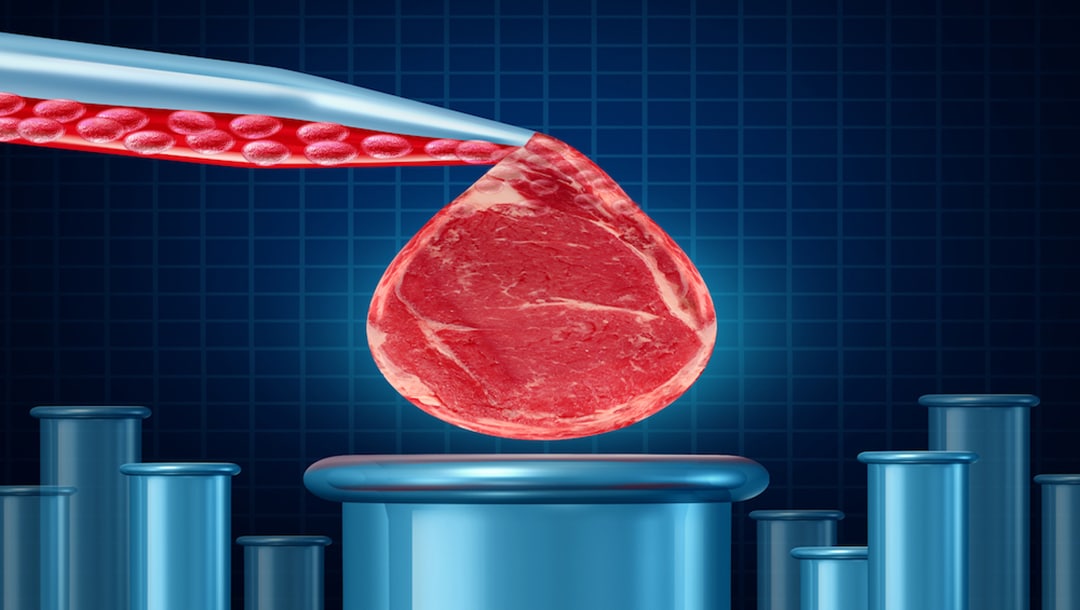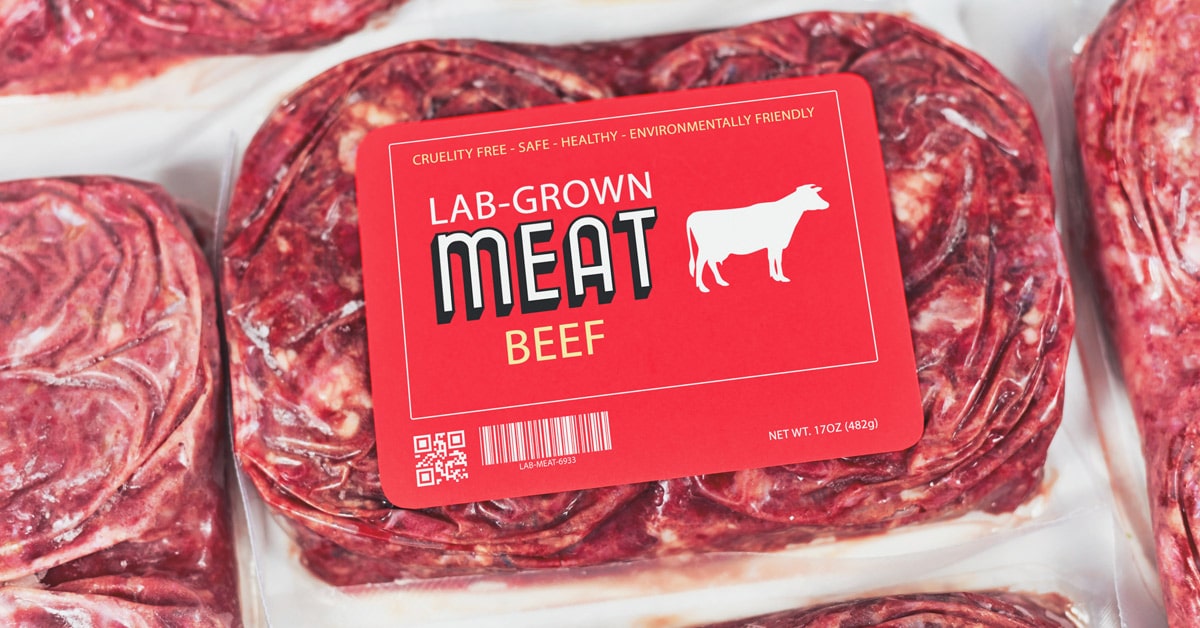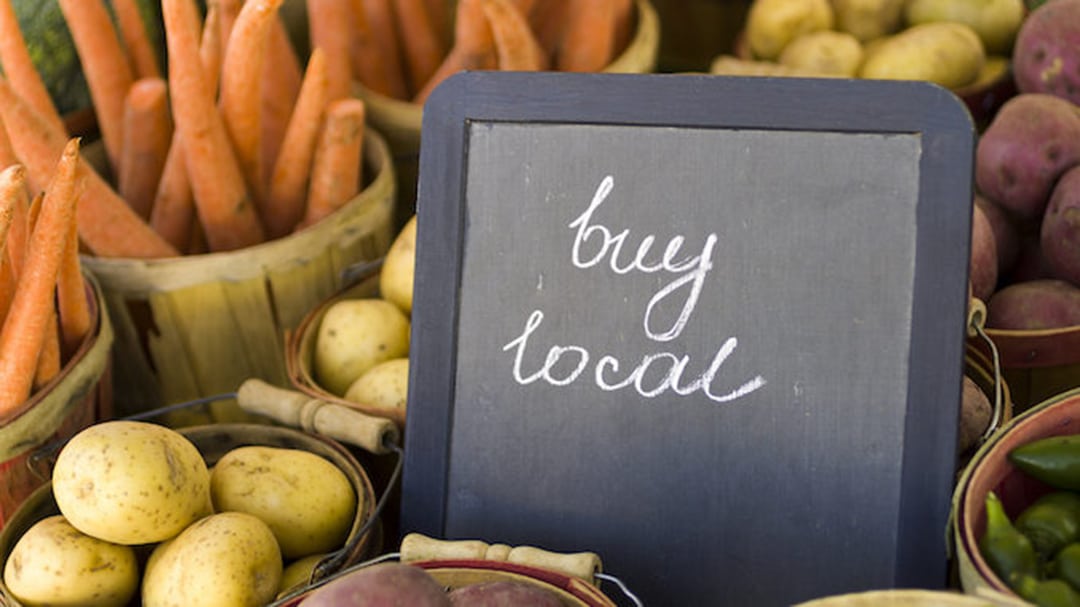

Lab meat down on the farm: It’s going to happen, say advocates
Science fiction down on the farm? What about this? Take some biopsies from live meat animals, put the cells, suspended in nutrients, in large bioreactors, and wait for them to grow into a larger mass that can be processed into products such as burgers and sausages.
When asked for his opinion about this way of producing meat, a long-time beef raiser said, “What will they think of next?”
Opponents of this new technology — and there are many — describe it as corporate ag gone amok and derisively dub it as “lab meat, “fake meat,” or “alt meat.”
General terms are “cultivated meat” and “cultured meat.”
Not surprisingly, many meat producers warn that it’s a threat to traditional agriculture and to their livelihoods.
It seems that agriculture poses such a large threat that in May, Florida passed a bill making it unlawful for any person in the state to manufacture, hold, or offer any cultivated meat for sale or distribution. Several other states have followed suit.
Not surprisingly, a lawsuit against the ban has already been launched.
On the other side of the pond, Italy, in 2023, stepped into the fray and became the first country to ban cultivated meat, making it a law that lab-grown meat cannot be produced or marketed in Italy.
Even though BBC, which has covered this topic, says that regulators in most countries say the top issue is food safety, Italy’s ban goes beyond that. According to a statement from Italy’s ag minister, “the ban is trying to protect its food traditions and its farmers.”
Decentralizing meat production
Taking a look into the future, advocates—some of them meat producers themselves—say this new technology could decentralize meat production by having farmers actually produce the cultivated meat on their own farms.
Some even see this as a way to diversify and produce meat with fewer animals and sell their meat locally. Not to mention the environmental benefits of this approach. And the humane part of the picture—that no animals need to be slaughtered—to which animal rights supporters give a thumbs up.
Antibiotics are typically used in meat animals and poultry to fight disease and speed up growth. However, lab-meat researchers say they don’t need to use antibiotics in their products because the sterile laboratory process makes them unnecessary. Similarly, they don’t need to use growth-promoting hormones.
Advocates also say that this method is a definite plus when it comes to food safety since it doesn’t require all the blood, guts, and manure typical of slaughterhouses.
Cultivated meat advocates describe the advantages of this technology over conventional methods of raising livestock as “clean, safe, and humane.”
Others warn that cultivated meat is not a silver bullet. Producing enough of it at a reasonable cost is not in the cards.
History
The first cell-cultivated meat product, a hamburger, was created in 2013 by Mark Post, a scientist at Maastricht University in the Netherlands.
Research and development continued. In 2022, the U.S. Drug and Food Administration provided premarket review and approval for two companies, GOOD Meat and UPSIDE Foods, to sell cell-cultivated chicken in U.S. markets.
“The world is experiencing a “food revolution,” said a statement at the time from FDA Commissioner Robert Califf and Center for Food Safety and Applied Nutrition Director Susan Mayne.
What in the world is this all about?
It’s about the future heading its way onto the agricultural landscape, although it will be a while before it actually happens out in the marketplace. Even so, in late 2022, cultivated meat maker UPSIDE Foods received a green light from the FDA for its chicken grown from animal cells, marking the first regulatory approval for any cultivated meat in the United States.
“We have no questions at this time that foods . . . comprised of or containing cultured chicken cell material resulting from UPSIDE’s production process . . . are as safe as comparable foods produced by other methods,” said the agency’s no- questions letter to UPSIDE.
So far, the only market approvals are in Singapore, Israel and the U.S. And while the industry has seen progress, most consumers have yet to see cultivated meat.
In July 2023, UPSIDE Foods and GOOD Meat sold the first cell-cultured chicken at restaurants in San Francisco and Washington D.C., respectively.
Important to keep in mind in all of this is that cell-based meats, also called cultivated meats, are not plant-based “meatless meats” such as products like MorningStar Farms’ chicken nuggets, Beyond Burger and Awesome Burgers, which are made from a variety of vegetables.
How will it happen on the farm?
Cultivated meat is typically made in large bioreactors centralized in one facility. But in the case of farms that adopt this technology, the main production of cultivated meat will happen on the farm, said Alexander Heuer, co-founder and co-CEO of German start-up Meatosys in an interview with FoodNavigator.
Its plug-and-ply bioreactors will be housed in 40-foot shipping containers, set up on the premises of individual farms. And while the equipment will be made elsewhere, the final growth and differentiation will be done on farm.
“This is what we call decentralized: Instead of a single large production facility, our production will be distributed across all farms that opt to install our equipment, supported by regional logistics hubs,” explained Heuer.
Heuer stressed that his company does not want to do away with animal farming, but simply create more options for farmers.
“Animal farming is part of a much larger ecosystem and interconnected to many other aspects far beyond just ordinary meat production,” he told a reporter. “Our farmers still have animals, just less of them as our technology acts as a multiplier.”
The farmer’s voice
In the 1980s, Willem van Eelen began working on the technology that produces cultivated meat. And now his daughter, Ira, with RESPECTfarms (https://www.respectfarms.com) is continuing on with his work..
Fourth-generation Dutch farmer Teun de Jongh, of RESPCTfarms said the changes in society and the market opened his eyes to the need to consider producing cultivated meat on his farm.
“I saw a new opportunity for my farm,” he said in video the on the website. “I’m working with experts to make my farm ready for the future. It’s an opportunity with potential economic and technological benefits.”
As Ira van Eelen explains in the video, the farm is a smart location for this, because everything you need is already there. You’ve got the animals and their cells, a place to generate energy, as well as the people who are adept at handling them, are familiar with following processes and know how to deal with hygiene. Farmers can play a role in feeding the cells, and process residual flows via recycling and waste management.
“So why wouldn’t we do it in a place like that?” she asks.
RESPECTfarms is working toward fully optimizing its first farm by 2029, in the hope to start a movement that can help scale out its process from 2030 onwards.
“Our first long-term vision is the transformation of 1,000 farms in 2038, with a growing network to expand and sustain,” says van Eelen.
But how much will it cost?
According to a report from the Royal Agricultural University (RAU), farms producing cultivated meat would cost an average of 30 percent more than large factories doing the same thing. While this research was done with the UK’s farms in mind, it nevertheless suggests significant challenges.
Even so, advocates are optimistic that continued research in this “young industry” will find ways to keep the costs down.
That has already happened in the marketplace. The first lab-grown burger cost $330,000 to create in 2013. Since then, the price has fallen to just under $10 today.
According to RESPECTfarms’ website, “The technological development of cultivated meat can help provide the world and its ever-growing appetite for meat with a solution: sustainable, locally produced beef, pork, and poultry.





0 Comments